I am sure you have heard of such skin types as normal, oily, dry, combination, or sensitive skin. But do you know which one matches your skin type? Knowing your skin type is something crucial because it allows you to keep your skin healthy and clean.
Interestingly, your skin type is not fixed and may change with age. For instance, teens have increased sebum production, and this causes their skin to be oily, different from women who might find their skin turning dry as they grow older.
What Skin Type You Have?
To figure out your skin type, look for signs of oily, dry, normal, combination, or sensitive skin. Here’s a quick overview of the five main skin types and how to care for them:
1. Normal Skin Type
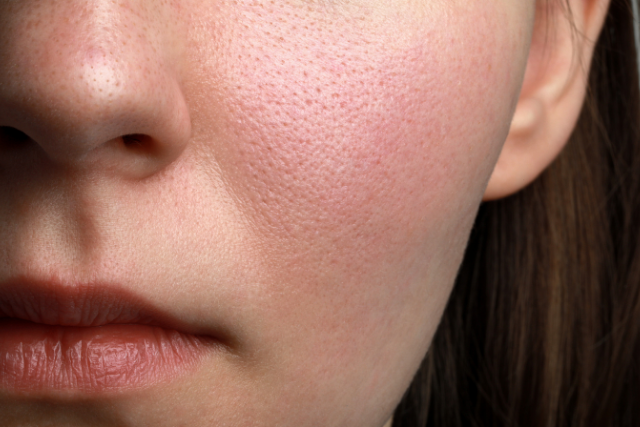
Normal skin strikes a perfect balance—not too oily or dry. It usually shows:
- Few or no imperfections
- Little to no sensitivity
- Small, nearly invisible pores
- A healthy, radiant appearance
Interestingly, only about 20% of people have normal skin, making it less common than oily or dry skin types.
2. Combination Skin Type
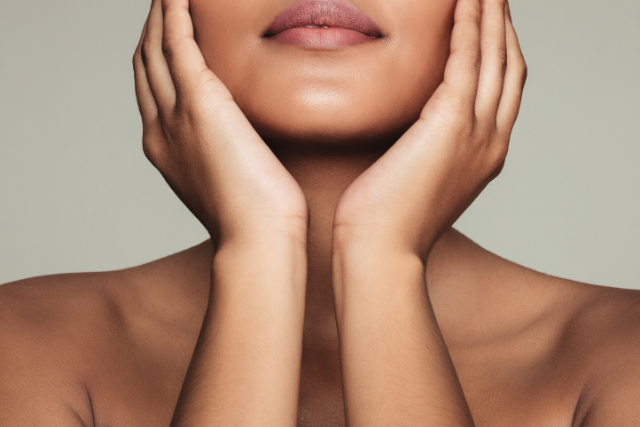
Combination skin is tricky. It mixes dry or normal spots with oily patches. The T-zone—your forehead, nose, and chin—is often greasy. Many people have this skin type, more than 40%. Caring for it takes effort, as no one-size-fits-all approach works.
Signs of Combination Skin:
- Large pores on the oily parts of the face
- A shiny T-zone
- Dry or tight-feeling cheeks
Care Tips: Use lightweight, oil-free products on oily areas and hydrating products on dry zones. Avoid heavy oils and harsh chemicals.
3 Dry Skin Type
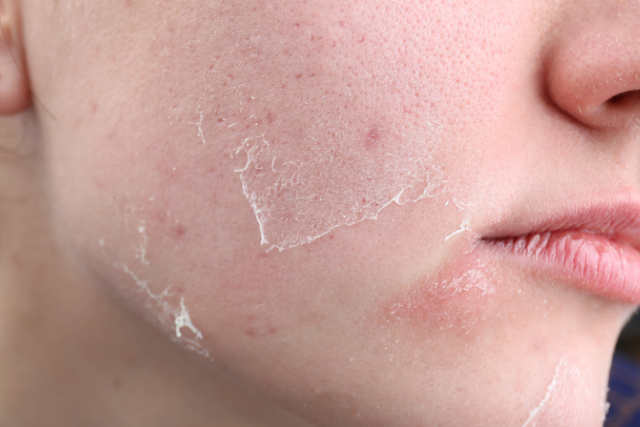
Dry skin shows itself in many ways. Look for these signs:
- Small or barely-there pores on the skin.
- A dull, uneven surface that feels rough.
- Red spots or patches that stand out.
- Skin that stretches tight or lacks bounce.
- Thin lines appearing more defined or raised.
When dryness gets worse, skin can crack, flake, or even feel like it’s burning. Severe cases might show thick, scaly patches, often on hands, arms, or legs. Such skin needs careful handling and extra care.
So, what causes it?
Dry skin can result from:
- Genetics
- Hormonal changes or aging
- Such as cold, wind or sunny weather
- UV radiation including that from tanning beds for an extended period
- Indoor heating systems
- Long, hot showers or baths
- High quality soap, cosmetics or skin care products
- Certain medications
How to Care for Dry Skin
To care for and protect dry skin, follow these steps:
- Hot water dries you out. Use warm water, and shower only once a day. Keep it quick.
- Avoid soap that smells strong or foams heavily. Choose soft, fragrance-free washes.
- Towels should touch lightly. No rough dragging motions.
- After washing, trap moisture with a thick cream or balm. Reapply midday if needed.
- Winter air dries out rooms. Keep some moisture in the air.
- Wear gloves when scrubbing dishes or using cleaners. Shield hands from harsh chemicals.
4. Oily Skin Type
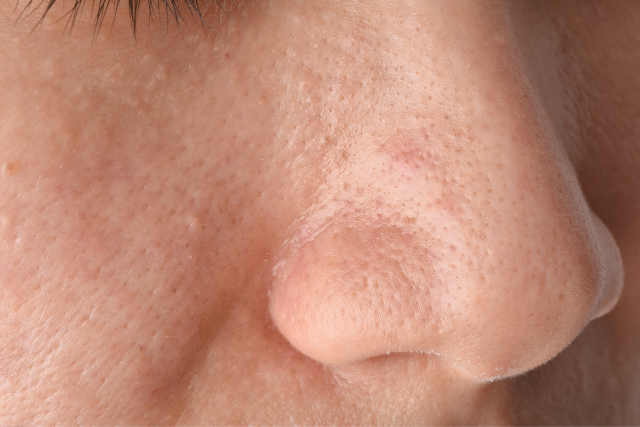
If you have oily skin, you might notice these common signs:
- Large pores
- A shiny or greasy appearance
- Acne, black comedons, or spots
Oil levels on the skin aren’t constant. They can change with hot weather, humidity, or hormonal shifts. Key factors that increase oil production include:
- The role of hormones during puberty
- Stress
- Hot and humid days
How to Care for Oily Skin
- Cleanse your face at least twice a day but do not use abrasive facial cleansers. These can cause skin irritation and this makes things worse.
- Opt for gentle cleansers.
- Do not attempt to burst or squeeze pimples as this makes them worse and take time to heal.
- Avoid products that clog the pores by going for products with the noncomedogenic label.
According to surveys, about 85% of teenagers and young adults experience acne and many of them have oily skin.
5. Sensitive Skin Type
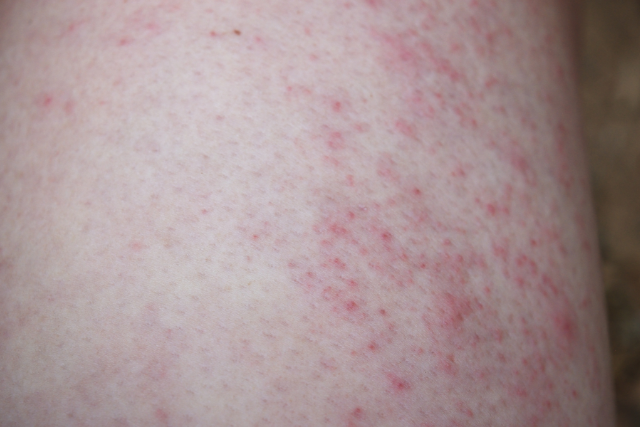
Does your skin often feel delicate or easily irritated? If it frequently reacts with redness, itching, burning, or dryness, you may have sensitive skin.
Sensitive skin can be triggered by various factors, with some of the most common being:
- Harsh Skincare Products: Certain products contain chemicals that can irritate the skin.
- Environmental Factors: Pollution, extreme temperatures, and wind can harm delicate skin.
- Allergies: Substances like pollen or pet dander can lead to skin reactions.
How to Care for Oily Skin
- Choose mild, fragrance-free cleansers that help maintain your skin’s natural moisture.
- Use a gentle, non-comedogenic moisturizer to keep your skin hydrated.
- Identify products or allergens that irritate your skin and steer clear of them.
- Always wear sunscreen with a high SPF to protect your skin from harmful UV rays.
According to the American Academy of Dermatology, 50% of people experience skin sensitivity at some point in their lives. If your skin sensitivity is severe or ongoing, it’s a good idea to consult a dermatologist for professional guidance.
Expert Tips For Your Skincare
Here are 6 important skincare tips that can help keep your skin healthy and looking great, no matter your skin type:
- Apply sunscreen with broad-spectrum protection to block both UVA and UVB rays. Look for SPF 30 or higher for better protection.
- Avoid being in direct sunlight for long periods. Wear a hat and sunglasses to shield your face.
- Smoking harms your skin, making it look older and causing wrinkles, so it’s best to avoid it.
- Drink enough water throughout the day to keep your skin hydrated.
- Clean your face gently every day. Never go to bed with makeup on as it can clog your pores.
- Use a moisturizer to keep your skin soft and hydrated.
Last Words
Understanding your skin type and how to care for it can make a big difference in your skincare routine. Whether you’re dealing with acne, dryness, or just trying to keep your skin glowing, knowing your skin type is the first step in achieving healthy, beautiful skin.


